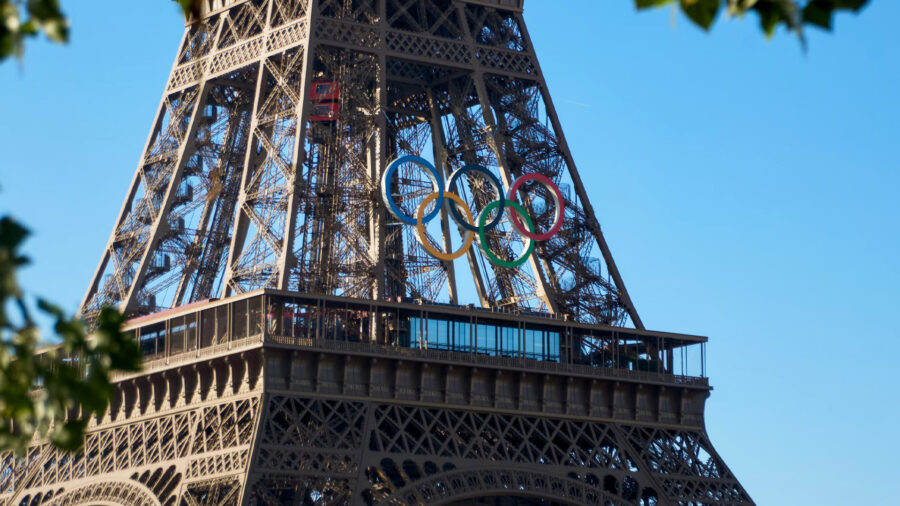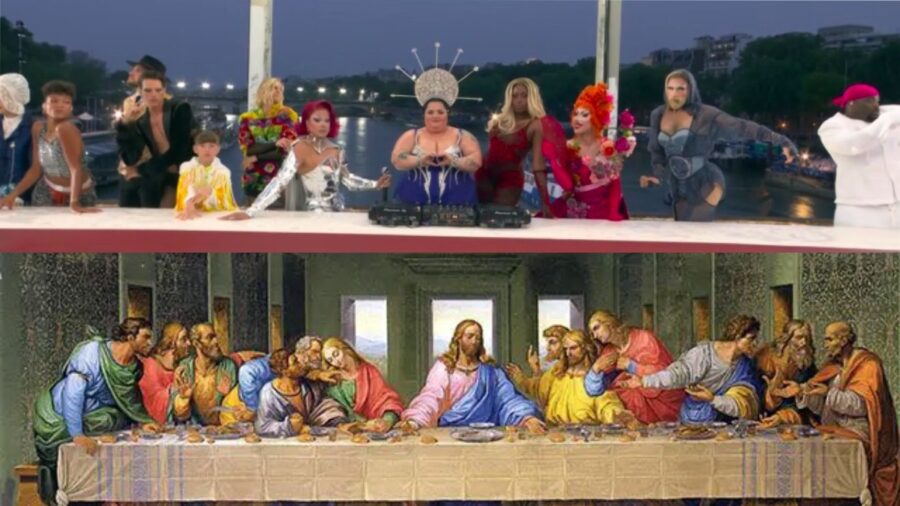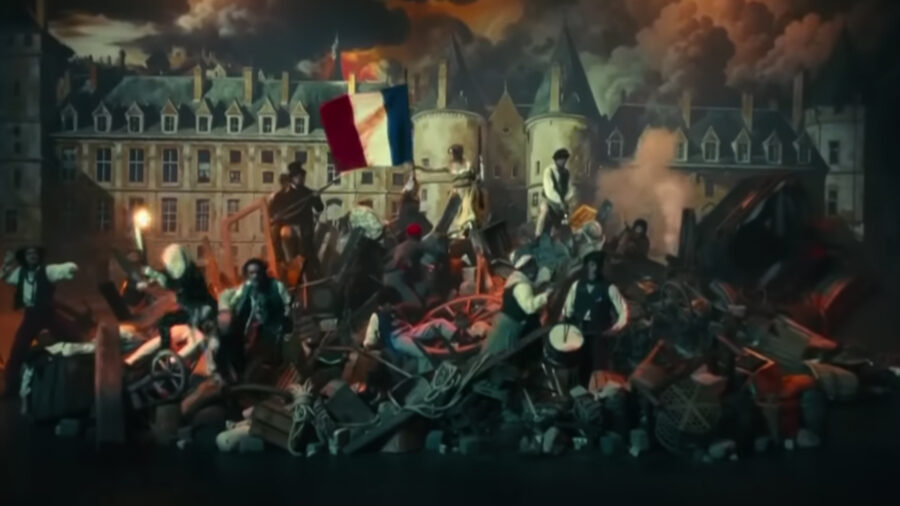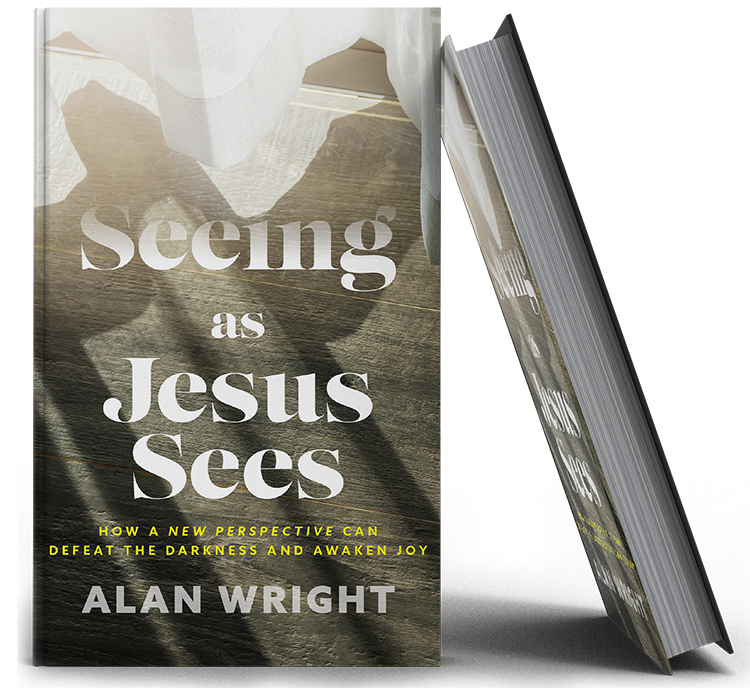

I love the Olympics.
When the kids were little, we’d watch together and cheer and jump off couches to stick our own landings.
As I write, our daughter Abby is in Paris watching the USA men’s quarter final beach volleyball under the twinkling lights of the Eiffel Tower and I’m texting her every five minutes, living the games vicariously.
So why mock Jesus and the Lord’s Supper during an expansive opening ceremony that also included some beautiful and epic moments?
It has to do with the deeper story that the ceremonies creators wanted to tell. The ceremonies’ artistic director, Thomas Jolly, said he just wanted the show to express the value of inclusiveness. “We are lucky in France to live in a free country,” Jolly said in response to the controversy. “In France, we are republic, we have the right to love whom we want, we have the right not to be worshippers, we have a lot of rights in France, and this is what I wanted to convey.”
There is no more important biblical image or promise than freedom. In fact, Christ affirmed Isaiah’s prophetic word about Himself – the Messiah came to set captive free.
So, what went so wrong in the ceremonies’ attempt to highlight freedom?
The Offensive Scene
If you missed the scandalous scene, it’s hard to find now. The organizing committee of Paris 2024 has scrubbed it from YouTube. Atop a Paris bridge, a long table served as the runway for a Paris fashion show. Those seated at the long table were centered around a haloed obese woman who served as DJ for the occasion (the leader choosing the music, shaping the environment). The characters surrounding her included various LGBTQ icons -- drag queens, a transgender model and a prepubescent girl who is taken into a man’s arms.
The haloed host is flanked left and right by apparent devotees and so it immediately conjures the image of DaVinci’s famous “The Last Supper”. I, and millions, who love Jesus and His church felt repulsed and offended.


Against the outcry of insulted Christians, committee representatives claimed it wasn’t a parody of the Lord’s Supper (that it just happened to look like it) and that, instead of being an allusion to Jesus’ Passover feast on the eve of His crucifixion, it was a playful nod to the ancient Greek god of wine, Dionysus (a salute to France’s wine industry). As the feast takes place, a nearly naked blue man emerges from the food and sings about how much more wonderful the world would be if we were all naked all the time: “Would there be wars if we had stayed entirely naked? Where to hide a revolver when you’re entirely naked?”
The intended message couldn’t be clearer—the problem with the world today is restraint. We just need more “freedom.” If we could just break free from all the restrictions, all the religious rules, all the sexual mores, and even these pesky clothes, then the world would be happy and there would be no more war. If there be any question of the message, it is answered by the next major musical event of the ceremony—a sentimental rendition of Lennon’s famous “Imagine,” which envisions how wonderful it would be if “there’s no heaven or hell … and no religion too.”
Was it Really a Parody of DaVinci’s “The Last Supper” and a Mockery of Jesus?
The scene was clearly a parody of the Lord’s Supper for multiple reasons. 1) The image of a central figure with a halo, flanked by close associates in varied colors at a long table for a meal IS the exact scene of DaVinci’s famous painting; 2) The central figure, the haloed DJ, was played by a lesbian French activitist and disc jockey named Barbara Butch who tweeted of the scene: “Oh Yes! Oh Yes! The New Gay Testament.” She has since deleted the tweet that mocked Christ’s Passover announcement of the “New Covenant.” 3) French news outlets repeatedly referred to the scene title with a play on words in French, “La Cène Sur La Scene Sur La Seine” which translates “The Last Supper on the Stage on the Siene.”
Looks like a duck. Quacks like a duck. Walks like a duck. It’s a duck.
Clearly, the scene was intended to signify some kind of reversal or reinterpretation of the Last Supper. But why? Why pick on a central image of Christianity? And why add this Dionysus figure with his odd song?
The Great Deception Underlying it All
The opening ceremonies aimed to artistically reveal the French values reflected in their national motto that finds its origins in the French Revolution: “Liberté, Egalité, Fraternité” (Liberty, Equality, Fraternity). They’re beautiful words evoking noble aspirations upon which can all agree—for which we all long: that we live in freedom and that all human beings are equally valued and that we enjoy authentic commonality, like a brotherhood, amidst our differences.
If we think of biblical values, we see the three virtues on glorious display: Liberty—Christ came to set us free; Equality— in Christ there is no free or slave; and Fraternity—we, in Christ, are children of God, brothers and sisters to one another—one body with diverse gifts.
But hell has a counterfeit agenda for every beautiful biblical ideology. Especially when it comes to what “liberty” means.
The problem, the real, underlying problem in the offensive Lord’s Supper parody is the wrong definition of liberty – a complete distortion of the biblical notion of freedom.
Earlier in the opening ceremonies, there’s a powerful connection to Victor Hugo’s Les Miserable when a moving scene reprises a song from the musical, a song of liberation “Do You Hear the People Sing?” Its lyrics include the cry of a revolution “It is the music of a people who will not be slaves again…”


Les Mis, included in every list of greatest novels of all time, tells a story about the yearning for freedom. It is an epic tale about the power of grace over law as seen through the eyes of former chain gang prisoner, Jean Valjean. After serving his time, Valjean is set free from his chains but isn’t free in his heart until he’s caught stealing from a bishop who, instead of pressing charges, claims that the silver Valjean stole was a gift from the bishop. That godly act of unmerited grace changed everything in Valjean’s life—he was free to start a new life and help others to the best of his ability.
Valjean’s story is a gospel story that portrays the deep essence of true freedom. Freedom is not the absence of restraint. It is not the liberty to pursue selfish appetites. Real freedom, God’s kind of freedom, is the glorious gift that comes when we experience a radical grace that forgives us and calls us to a new way of life—a life of service and ministry and giving.
But when the ceremonies upended the Lord’s Supper, it is an artistic expression of the opposite definition of freedom. In contrast to Jean Valjean’s freedom to serve and give because the experience of grace liberated him from guilt and shame, the Lord’s Supper parody presents a distorted version of freedom that promotes disorder.
The spirit of the age cries out: “Cast off restraint and be free! Let no one tell you what to do and be free! Remove the restrictions and be free!”
In other words, the modern secular notion of freedom believes that the pathway to liberty is through less commitments and more choices. But what Christ came to give us is exactly the opposite.
Jesus taught that the way to abundant life is a paradox: “enter by the narrow gate… for the gate is narrow .. that leads to life.” (Matt 7:13-14). The paradoxical plea makes no sense to the modern secular world. Why would anybody want anything “narrow”? Everything we think of as “narrow” in today’s world is deemed a negative. Christians are dubbed “narrow-minded.”
But, if we want to be free, to have an expansive life in which our chains are gone, we must enter by the narrow gate. Jesus is referring to Himself and the forgiveness He alone can offer. God wants everyone to be free. He wants Olympic ceremonies director Thomas Jolly to be free. He wants atheists and Muslims and Christians to be free. He wants everyone to live to the full. He came to give life abundant! But the way to that life is like a narrow gate. It looks restrictive. It looks like the opposite of freedom.
Here’s the glory and scandal of the Christian Gospel: it is called narrow because it is the only way. There is no other way to escape the bondage of sin and shame. Every other attempt at freedom does not lead to liberty but to slavery. The narrow gate seems restrictive, but on the other side is an expansive field. That’s the good news! There is a gate. There is a way out of sin’s bondage and into expansive life!


We err to assume in the modern world that “broad” is good and “narrow” is bad. We have been duped into believing that more choices are always better—that it’s more life-giving to keep your options open. Want to be a man or a woman? You have the choice. Want to have sex with a man or woman or both? Your choice. Want to include an underage child in the spectacle. Your choice. Want to dress in the opposite gender or take off all your clothes. Your choice. That’s the definition of freedom according to the spirit of the age.
Not all that is narrow is bad. Sometimes, it is the very best. Sometimes, narrow is the only pathway to more vast blessing. Thirty-nine years ago, I promised to love and be faithful to one woman as long as we both shall live. That exclusive, narrow commitment has opened to me an expanse of blessing I could have never imagined or obtained had I prioritized “keeping my options open”. The exclusive, narrow gate of marriage opened into an immeasurable field of blessedness, including children, a grandchild, a shared ministry, an enduring best friend, a shared bed, a constant prayer partner and the comfort of growing older together. I’m “free” to enjoy such vast blessing over the “freedom” of keeping my options open.
I’ll explore more in my next post about the beauty and power of the true, biblical meaning of freedom. And I’ll attempt to show you how the image of the Dionysus figure in the Olympics ceremony scene betrays the world’s perverted longing for endless carnival, the perpetual turning upside down of order. That longing for disorder, for the chaos of unrestrained living, is at the heart of hell’s ploys. More on that next.
I’m not boycotting the Olympics. And I’m not letting a horribly offensive scene in the opening ceremonies dampen my joy in the games. No way would I let one artist’s, or one committee’s distorted idea of liberty rob me of the joy of watching the Olympic competition.
And I don’t want to merely rage against the blasphemy. Since I wrote Seeing as Jesus Sees , I’ve been trying to pause, connect with Christ and ask: “How do you see this?” It’s helping me to not react to the world’s blasphemies from my flesh. I think Jesus sees the mockery of His Last Supper more through tears than resentment. I think He sees lost people like sheep without a shepherd who are being oppressed and misled and devoured by the wolf of hell. I think He wants us to keep pointing people to true Freedom so they can be rescued by the Good Shepherd.
I’m not sure how much Christian mockery the ceremonies’ creators consciously had in mind. Sometimes artists create images and scenes from an unconscious part of their mind and later, the message deserves analysis. But the general message of the ceremonies came through unclouded. The ceremonies pivot from the grand story of redemption and freedom in Les Miserables to the parody of “The Last Supper” because, in the end, the spirit of the age and the world’s definition of “Liberté” wins the ideological battle of the ceremonies while we who love Jesus are left with tears and outrage, wondering how did the world get to such a place so quickly?
The spirit of the age is not new. The lies are as ancient first century Rome and the liar offers the same wide gate – do anything you want with anyone you want, take off sexual restraint, take off gender restraint, take off all the clothes and restrictions and rules and you’ll finally be free! But the wide gate leads to destruction.
The narrow gate, the One true Lover of our souls, offers the only Way. We can never resolve our haunting guilt and shame by broadening the gate. There’s only one path to forgiveness and wholeness. The narrow Gate is beautiful and inviting because it means that anyone, ANYONE, who accepts the Savior’s gift can finally experience true Liberté. Whoever the Son sets free will be free indeed.

THE SEEING AS JESUS SEES BUNDLE
Pastor Alan's groundbreaking new book will empower you to discover the wonder and beauty you've been missing and clear away needless frustrations and misunderstandings. If you long to live with greater joy, victory, and wonder, let Pastor Alan Wright lead you through the Scriptures to the Savior's side to see everything from His perspective. You're going to love the view! When you donate to AWM this month, you'll receive a copy of Seeing as Jesus Sees and complimentary companion content to enhance your journey!
When You Donate You'll Receive:
• A Copy of Seeing As Jesus Sees
• Access to the Seeing as Jesus Sees Video Companion Series
• 6-week Seeing as Jesus Sees Reading Plan
• The Seeing as Jesus Sees Companion Study Guide
LEARN MORE >

